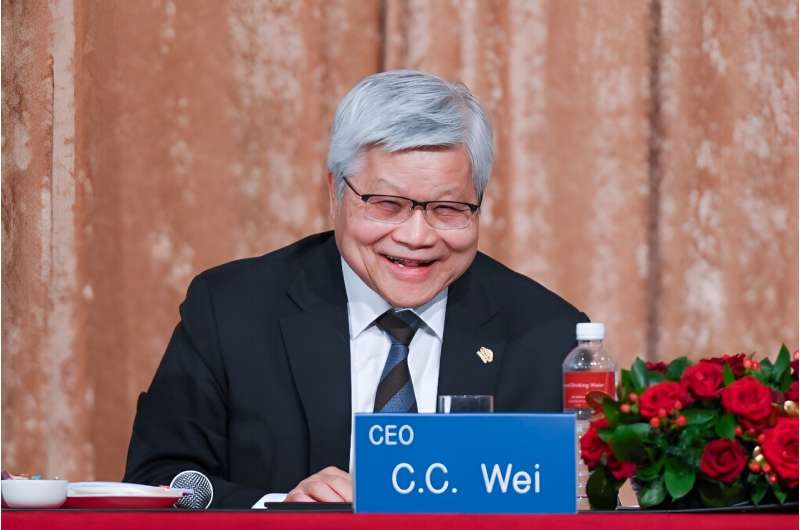
TSMC's board of directors on Tuesday unanimously elected chief executive CC Wei to succeed Mark Liu as chairman of the chip titan.
Wei will be the first person to hold the dual roles for Taiwan Semiconductor Manufacturing Company, which controls more than half the global output of microchips used in everything from smartphones to cars and missiles.
Wei takes up his new role as the firm sits at the center of a worldwide drive for the processors that are also needed to power generative artificial intelligence products, which have skyrocketed in popularity.
Liu has been in the post since 2018, when he succeeded company founder Morris Chang.
Under Liu's steerage, TSMC has opened new factories in Japan and the United States, as governments and customers have lobbied for the company to diversify its manufacturing base.
The company is the most important chip supplier to Apple. They also supply and work closely with AI leaders Nvidia and AMD—two rival heavyweights paving the way for the development and adoption of the technology.
Speaking during the firm's annual shareholders meeting on Tuesday, Wei—a familiar presence during quarterly releases—was asked which company outside of Nvidia and AMD "matters more" to TSMC.
"Both companies have a very good relationship with us and we have grown together with them," Wei said Tuesday.
The bulk of TSMC's chips are made in Taiwan, though worries about tensions with China, which claims the island as part of its territory, have raised concerns about supplies in the event of an invasion.
TSMC has also had to navigate geopolitical tussles between the United States and China as the superpowers spar over a range of issues, including technology, trade and Taiwan.
© 2024 AFP
Citation: TSMC votes for chief executive CC Wei to also become chairman (2024, June 4) retrieved 4 June 2024 from https://techxplore.com/news/2024-06-tsmc-votes-chief-cc-wei.html
This document is subject to copyright. Apart from any fair dealing for the purpose of private study or research, no part may be reproduced without the written permission. The content is provided for information purposes only.
